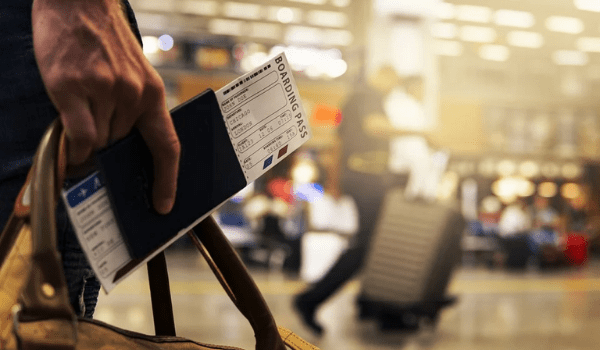An American journalist’s article published in the New York Post said that in the pre-COVID era, she used to crib about business travel, as travelling for long hours to complete official tasks used to exhaust her. She did not really find it fun then. However, now when she thinks of it, she realises that she really misses all that travelling. In fact, she observed that she visited most of the big cities in the US during work trips, and not during her usual vacations.
While this feeling may differ from person to person, for many employees business travel was a perk that came with the job. This is because, as part of their work-life, they also got the chance to see the world and new places. In fact, from a business effectiveness point of view, for many professionals, there is nothing like meeting their clients for a face-to-face interaction. It helps to understand and go deeper into the details of the business deal and build a better relationship. A study of the human behaviour also suggests that a simple handshake helps to release oxytocin in the brain, which builds trust between strangers for better co-operation. However, there are still some places and cities in the world and India, which are fighting the corona virus and an expected third wave! Therefore, organisations may have already prepared themselves for the new normal.
Earlier executives or mid-level employees found business travel attractive, but now, given the additional stress that comes with it and the disturbance it causes in their work schedule, many do not really find it as fascinating any more
Anil Gaur, CHRO, Uniparts Group
The HR leaders that HRKatha spoke to, also predict that orgnisations will now start to cut down expenses on business travel. “In the coming days, for any company, cost will be an essential variable to gain a competitive edge in the market, and since during the long months of lockdown and the pandemic, businesses have realised that people can also be equally productive working from home, they will start cutting down costs on unnecessary business travel,” says Anil Gaur, CHRO, Uniparts Group.
This prediction by the HR leaders may actually become a reality. According to a global study, almost 69 per cent of the respondents were of the view that in a post-COVID era, organisations will cut costs on business travel. But we also need to think about people who really enjoy travelling for work. Will they be able to let go of business travel in the new normal? According to the same global study mentioned earlier, it was found that 84 per cent of professionals were actually missing their business travels. In fact, they were quite eager to get back to ‘business travel mode’ as soon as possible.
Prasad Kulkarni, SVP-HR, Citco Group, believes that companies will come up with some guidelines and restrictions to curb business travel in a post-COVID era. However, he also highlights that there are some people who enjoy travelling for business and depending on the preference of such people, companies will make exceptions. “High attrition rates are a big challenge for many industries at this point of time. Companies will not compromise on losing people just because they want to curtail business travels to save cost,” shares Kulkarni.
“Personal liking or choice of people does not stand when it comes to their safety and health. People will think many times before making a decision to travel for work, as there will always be a fear of getting infected”
Udbhav Ganjoo, head-HR, global operations, India, emerging Asia & access markets, Viatris
For Udbhav Ganjoo, head-HR, global operations, India, emerging Asia & access markets, Viatris, employees are really concerned and fear for their health and safety. They will want to avoid a five or a six-hour travel for a one-hour meeting. “Personal liking or choice of people does not stand when it comes to their safety and health. People will think many times before making a decision to travel for work, as there will always be a fear of getting infected,” asserts Ganjoo.
Gaur points out that earlier executives or mid-level employees found business travel attractive, but now, given the additional stress that comes with it and the disturbance it causes in their work schedule, many do not really find it as fascinating any more. In fact, he shares that even before COVID, at Uniparts, he used to interact with overseas teams on virtual platforms. He finds that very convenient because the meeting is quite precise and at the same time, one can refer to documents and reports whenever required.
Ganjoo admits that even in the pharma industry, where sales and marketing people are used to travelling frequently, there has been a drop in business travel. “Doctors prefer to discuss many details or processes virtually rather than meeting sales representatives in person,” says Ganjoo.
It is not as if people in the corporate world will suddenly stop travelling altogether in the post-COVID era. Organisations will simply come up with guidelines and revisit their travel policies to curtail travel. Employees will only travel if it is urgent or necessary.
“High attrition rates are a big challenge for many industries at this point of time. Companies will not compromise on losing people just because they want to curtail business travels to save cost”
Prasad Kulkarni, SVP-HR, Citco Group
We need to understand a few things. First, businesses have realised that there is no need to travel for every engagement or meeting. Second, curtailing travel will save costs. Third, employees’ physical and mental wellbeing is also a big priority for companies now. However, companies may have to make exceptions in case of employees who consider business travel a big perk that accompanies their job.
Value our content... contribute towards our growth. Even a small contribution a month would be of great help for us.
Since eight years, we have been serving the industry through daily news and stories. Our content is free for all and we plan to keep it that way.
Support HRKatha. Pay Here (All it takes is a minute)




































